Introduction

Are you familiar with the versatile world of wire materials? From platinum coated nickel wire to silver-deposited nickel wire, the options may seem overwhelming. But fear not! In this article, we'll delve into the differences and benefits of each, helping you make an informed decision for your next project.
Understanding Platinum Coated Nickel Wire
Platinum coated nickel wire is a type of wire that consists of a core made of nickel and is coated with a layer of platinum. This combination offers unique properties that make it suitable for various applications, from electronics to medical devices.
Exploring Silver-Deposited Nickel Wire
On the other hand, silver-deposited nickel wire involves a layer of silver deposited onto a core made of nickel. This type of wire also possesses distinct characteristics that make it valuable in different industries.
The Importance of Choosing the Right Wire Material
Selecting the right wire material is crucial for ensuring optimal performance and longevity in your project. Whether it's platinum coated nickel or silver-deposited nickel, understanding their properties and applications is key to making an informed choice.
Now let's dive deeper into the specifics of platinum coated nickel wire and silver-deposited nickel wire to understand their advantages, applications, and how they compare with other wire materials on the market.
What is Platinum Coated Nickel Wire?
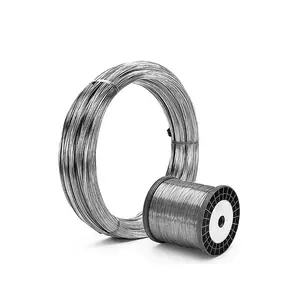
Platinum coated nickel wire is a type of wire that consists of a core made of nickel and a thin layer of platinum coating. This combination offers the benefits of both metals, providing excellent electrical conductivity and resistance to corrosion. The addition of platinum enhances the durability and longevity of the wire, making it suitable for various industrial applications.
Advantages of Using Platinum Coated Nickel Wire
The main advantage of using platinum coated nickel wire is its superior electrical properties. The combination of nickel and platinum results in a high level of conductivity, making it an ideal choice for applications that require reliable electrical connections. Additionally, the platinum coating provides excellent resistance to oxidation and chemical corrosion, ensuring the longevity and reliability of the wire in harsh environments.
Furthermore, the use of platinum coated nickel wire is also advantageous due to its high temperature resistance. This makes it suitable for use in applications where the wire may be subjected to extreme heat, such as in industrial ovens or heating elements. The ability of the wire to maintain its electrical properties even at high temperatures adds to its reliability and versatility in various settings.
Applications of Platinum Coated Nickel Wire
Platinum coated nickel wire is commonly used in industries such as aerospace, automotive, and electronics due to its exceptional performance characteristics. It is often utilized in sensors, heating elements, and thermocouples where precision temperature measurement is crucial. The unique properties of platinum coated nickel wire make it an essential component in various high-temperature applications where stability and accuracy are paramount.
Platinum coated nickel wire stands out from other wire materials due to its ability to withstand high temperatures and harsh environments without compromising accuracy. Its resistance to corrosion and oxidation makes it a reliable choice for applications in aerospace, automotive, and electronics where performance under extreme conditions is essential. In comparison to other wire materials, platinum coated nickel wire offers superior stability and longevity, making it a cost-effective solution for industries that require precision temperature measurement.
Comparison with Other Wire Materials
When compared to other wire materials such as nichrome or pure platinum wire, platinum coated nickel wire offers a cost-effective alternative without compromising on performance. Nichrome wire may be cheaper but lacks the same level of corrosion resistance as platinum coated nickel wire. On the other hand, pure platinum wire can be costly and may not be necessary for applications where a platinum coating on nickel provides sufficient performance.
Furthermore, platinum coated nickel wire offers excellent electrical conductivity, making it an ideal choice for applications where high performance is required. Its durability and resistance to wear and tear also make it a reliable option for long-term use. Additionally, the cost-effectiveness of platinum coated nickel wire makes it a practical choice for budget-conscious projects without sacrificing quality.
What is Silver-Deposited Nickel Wire?
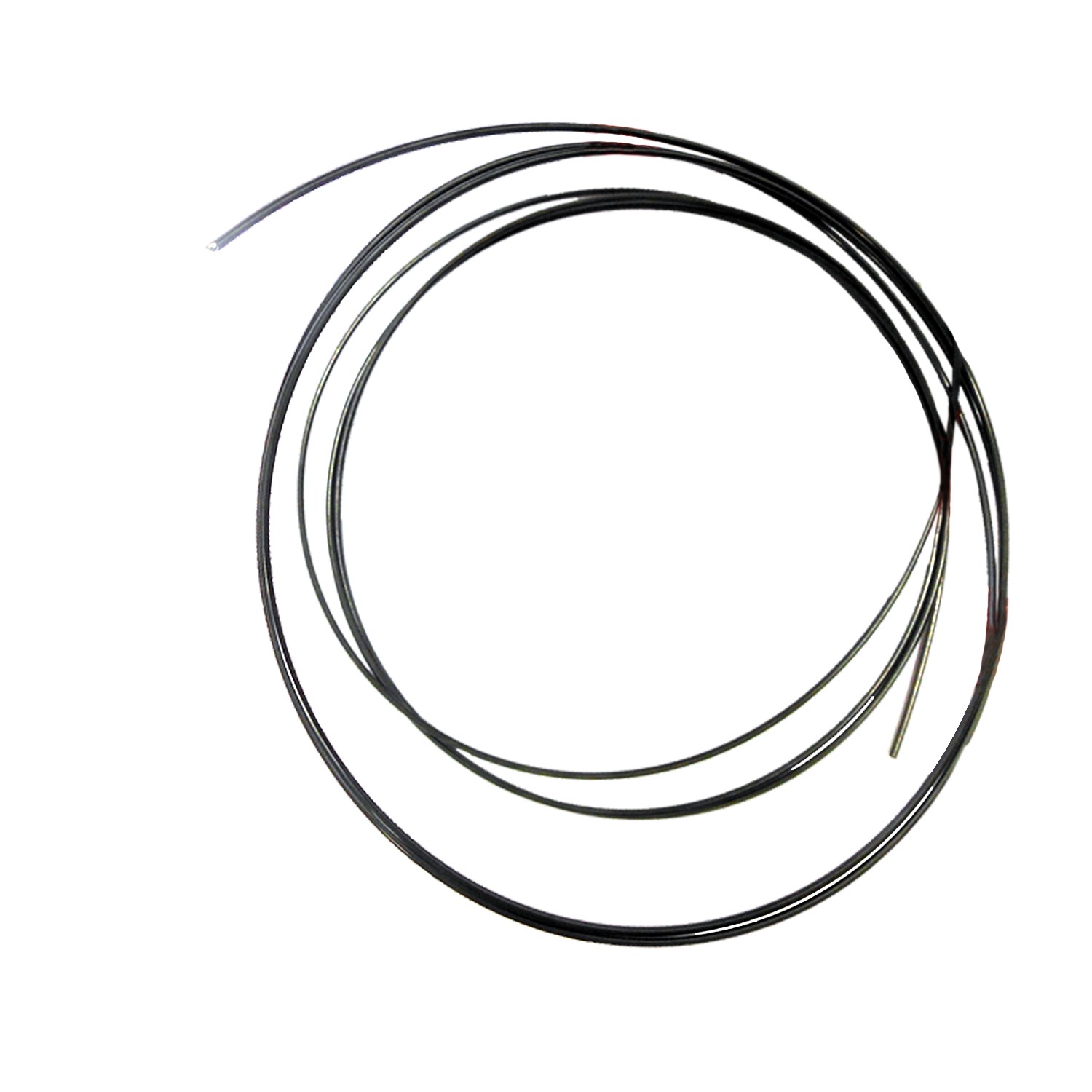
Benefits of Silver-Deposited Nickel Wire
Silver-deposited nickel wire offers excellent electrical conductivity and corrosion resistance, making it a reliable choice for various industrial applications. It also provides high thermal stability, ensuring consistent performance even in extreme conditions. Additionally, silver-deposited nickel wire is cost-effective, offering a more affordable alternative to platinum-coated nickel wire for certain projects.
In addition to its electrical conductivity and corrosion resistance, silver-deposited nickel wire also boasts a high tensile strength, making it suitable for applications that require durability and longevity. This makes it an ideal choice for industries such as aerospace, automotive, and electronics where the wire is subjected to constant stress and strain. Its ability to maintain its structural integrity under pressure further enhances its reliability in demanding environments.
Common Uses of Silver-Deposited Nickel Wire
Silver-deposited nickel wire is commonly used in the manufacturing of heating elements, resistors, and sensors due to its superior electrical properties. It is also utilized in the production of automotive components, aerospace equipment, and medical devices where reliability and durability are crucial. The versatility of silver-deposited nickel wire makes it a popular choice across different industries.
Silver-deposited nickel wire is also favored for its corrosion resistance, making it an ideal choice for applications in harsh environments such as marine and industrial settings. Its ability to withstand exposure to moisture, chemicals, and high temperatures ensures that the wire maintains its performance and longevity over time. This makes it a reliable option for critical systems where failure is not an option.
Contrasting Properties with Other Wire Options
Compared to other wire materials such as nichrome or platinum-coated nickel wire, silver-deposited nickel offers a unique combination of conductivity, stability, and affordability. While nichrome may be more commonly known for its high resistance and durability in heating applications, silver-deposited nickel wire stands out for its superior electrical performance and cost-effectiveness.
In addition to its superior electrical performance and cost-effectiveness, silver-deposited nickel wire also offers a higher level of conductivity compared to platinum-coated nickel wire. This means that it can efficiently transmit electrical signals with minimal resistance, making it an ideal choice for applications where high conductivity is essential. Furthermore, the stability of silver-deposited nickel wire ensures consistent performance over time, providing a reliable solution for various electrical and electronic needs.
Platinum Coated Nickel Wire vs. Silver-Deposited Nickel Wire
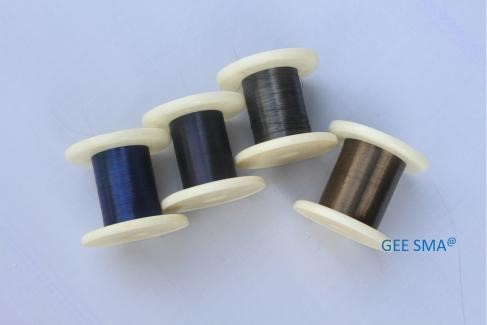
Electrical Conductivity and Resistance
When comparing platinum coated nickel wire and silver-deposited nickel wire, one of the key differences lies in their electrical conductivity and resistance. Platinum coated nickel wire offers higher electrical conductivity and lower resistance compared to silver-deposited nickel wire, making it a superior choice for applications that require precise and consistent electrical performance.
In addition to its superior electrical conductivity and lower resistance, platinum coated nickel wire also boasts exceptional durability and longevity. This makes it an ideal choice for applications that require a reliable and long-lasting electrical component. The platinum coating provides a protective barrier against corrosion and wear, ensuring that the wire maintains its performance over an extended period of time. This durability can result in cost savings for businesses in the long run, as they won't need to frequently replace or repair the wire.
Durability and Longevity
In terms of durability and longevity, platinum coated nickel wire outshines silver-deposited nickel wire. The platinum coating provides excellent resistance to corrosion, oxidation, and high temperatures, ensuring a longer lifespan for the wire. On the other hand, silver-deposited nickel wire may be more susceptible to environmental factors that can degrade its performance over time.
In addition to its superior durability and longevity, platinum coated nickel wire also offers a more cost-effective solution compared to silver-deposited nickel wire. While platinum may be initially more expensive, its longer lifespan and resistance to corrosion and oxidation can result in lower overall maintenance and replacement costs. This makes platinum coated nickel wire a more accessible option for industries looking to maximize their budget without sacrificing quality.
Cost-Effectiveness and Accessibility
While platinum coated nickel wire offers exceptional performance benefits, it is important to consider cost-effectiveness and accessibility when making a decision. Platinum is a precious metal with a higher price point, making it less accessible for certain budget constraints or mass production needs. In contrast, silver-deposited nickel wire provides a more affordable alternative without compromising on quality for many applications.
Furthermore, the availability of silver-deposited nickel wire makes it a more practical choice for industries requiring large quantities of wire for production. This accessibility allows for easier procurement and reduces the risk of supply chain disruptions. In contrast, the limited availability of platinum can lead to challenges in sourcing and may result in higher costs due to market fluctuations.
The Ultimate Choice: Platinum or Silver-Deposited Nickel?
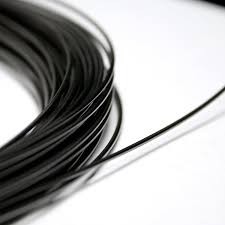
Environmental Impact and Sustainability
When comparing platinum coated nickel wire and silver-deposited nickel wire, it's important to consider their environmental impact and sustainability. Platinum is known for its high resistance to corrosion and oxidation, making it a more sustainable option compared to silver-deposited nickel wire. With the increasing focus on eco-friendly materials, choosing platinum coated nickel wire can contribute to a greener approach in various industries.
Practical Considerations for Different Applications
In practical terms, the choice between platinum coated nickel wire and silver-deposited nickel wire depends on the specific application. Platinum coated nickel wire is often preferred in industries such as aerospace, medical devices, and electronics due to its exceptional durability and resistance to high temperatures. On the other hand, silver-deposited nickel wire may be a more cost-effective alternative for applications where lower conductivity requirements are sufficient.
Future Trends and Innovations in Wire Technology
As technology continues to advance, there are ongoing developments in wire materials that offer improved performance and cost-efficiency. While platinum coated nickel wire remains a top choice for high-tech applications, there is also a growing demand for alternatives that provide similar benefits at a lower cost. This has led to innovations in nickel-platinum alloy wires that aim to strike a balance between performance and affordability.
Now you have a better understanding of the factors that come into play when choosing between platinum coated nickel wire and silver-deposited nickel wire. Whether you prioritize sustainability, practicality, or future trends in wire technology, it's essential to make an informed decision based on your specific requirements.
Conclusion
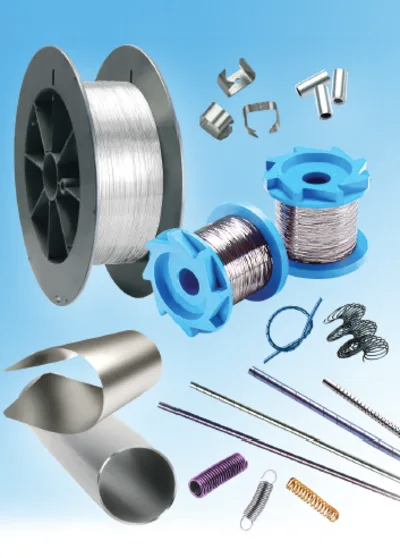
When it comes to making the right decision for your wire needs, understanding the differences between platinum nickel wire and other alternatives is crucial. Whether you're looking for a cheap alternative for platinum wire or exploring the benefits of platinum coated nickel wire, it's essential to address the unique requirements of your project.
Making the Right Decision for Your Wire Needs
Choosing between platinum nickel wire and other options such as Nichrome wire depends on factors like electrical conductivity, durability, and cost-effectiveness. By weighing these considerations carefully, you can make an informed decision that meets your specific wire needs.
Addressing the Unique Requirements of Your Project
Different projects may call for different types of wire materials based on their unique requirements. Understanding what is platinum nickel and its applications can help you address these specific needs effectively and ensure optimal performance in your project.
GEE SMA's Expertise in High-Quality Wire Materials
As a leading nickel platinum alloy exporter in China, GEE SMA offers high-quality wire materials that meet a wide range of industry needs. With expertise in platinum coated nickel wire and other innovative solutions, GEE SMA is committed to providing reliable products for various applications.
Remember, when it comes to choosing the right wire material for your project, it's important to consider factors such as environmental impact, practical applications, and future trends in wire technology. By staying informed about the latest innovations and understanding the unique properties of different wire materials, you can make a well-informed decision that aligns with your project goals.

